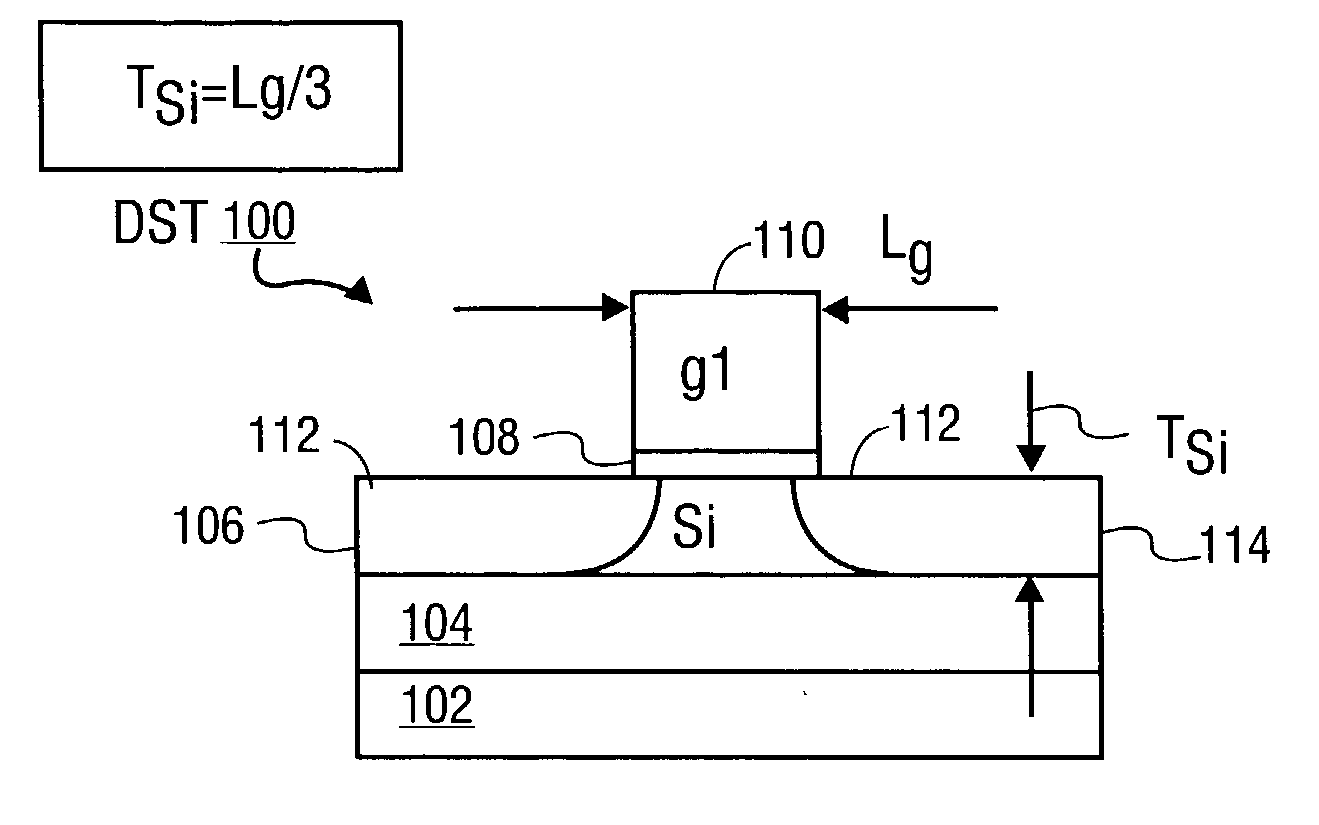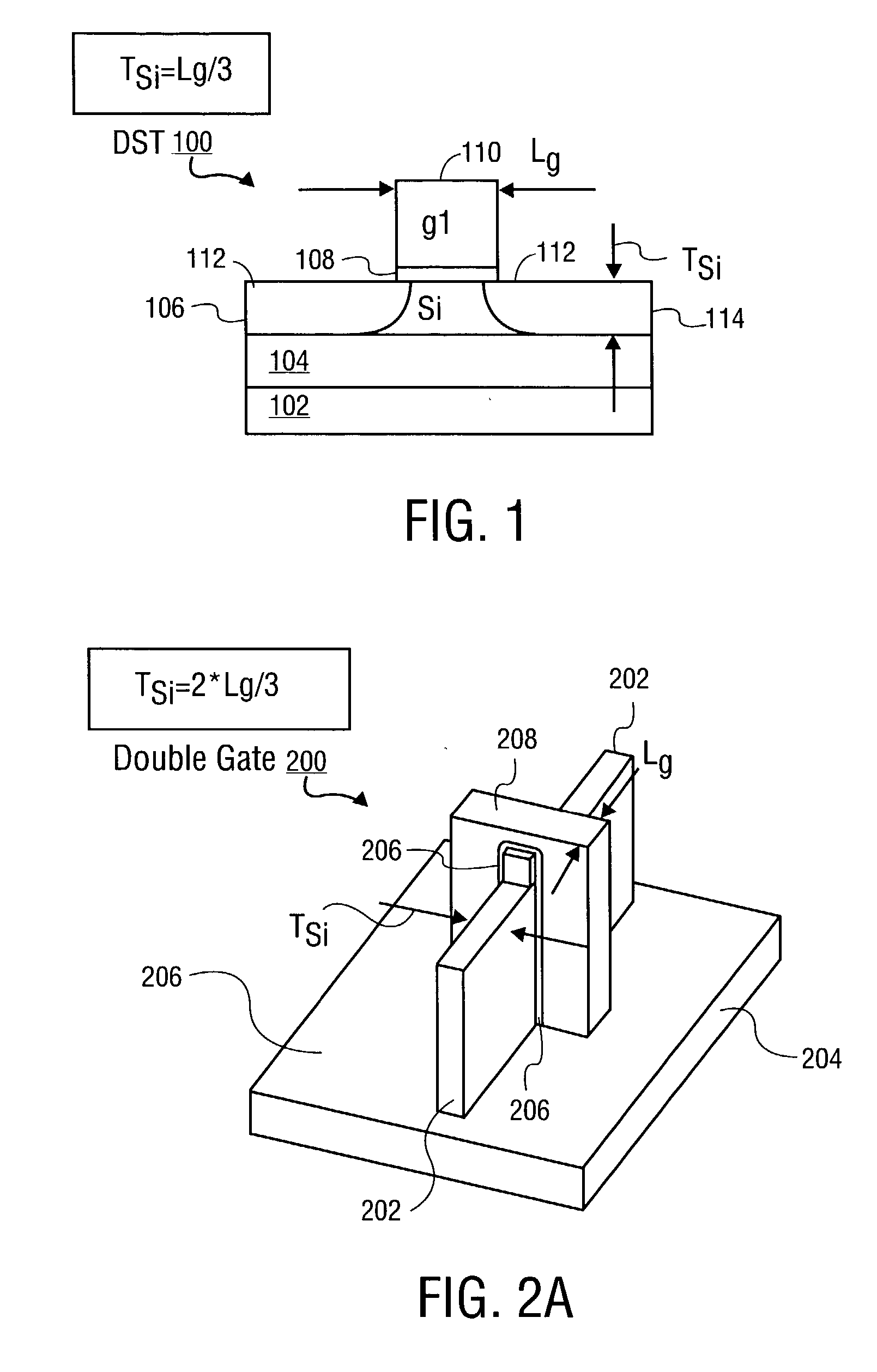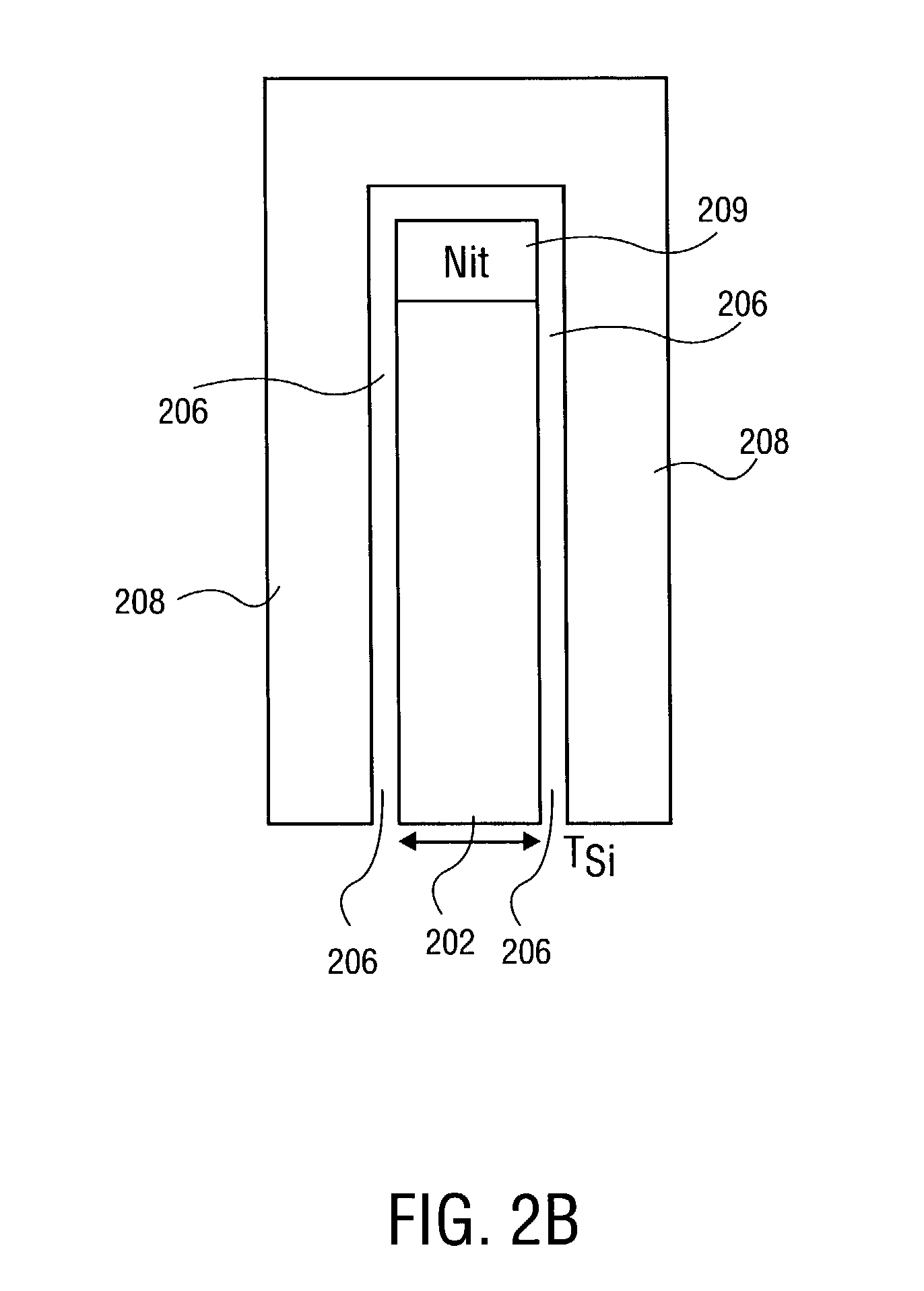Tri-gate devices and methods of fabrication
a technology of tri-gate and substrate, applied in the direction of semiconductor devices, electrical equipment, nanotechnology, etc., can solve the problems of increasing impracticality, decreasing the thickness of silicon films, and reducing the production efficiency of thin silicon films with thicknesses less than 10 nanometers, and is considered to be extremely difficul
- Summary
- Abstract
- Description
- Claims
- Application Information
AI Technical Summary
Benefits of technology
Problems solved by technology
Method used
Image
Examples
Embodiment Construction
[0015] The present invention is a novel tri-gate transistor structure and its method of fabrication. In the following description numerous specific details are set forth in order to provide a thorough understanding in the present invention. In other instances, well-known semiconductor process and manufacturing techniques have not been described in particular detail in order to not unnecessarily obscure the present invention.
[0016] The present invention is novel tri-gate transistor structure and its method of fabrication. In an embodiment of the present invention, the tri-gate transistor is a semiconductor on insulator (SOI) transistor. The tri-gate transistor is ideal for use in fully depleted substrate transistor applications. The tri-gate transistor includes a thin semiconductor body formed on an substrate, the substate can be an insulating substrate or a semiconductor substrate. A gate dielectric is formed on the top surface and the sidewalls of the semiconductor body. A gate ele...
PUM
 Login to View More
Login to View More Abstract
Description
Claims
Application Information
 Login to View More
Login to View More - R&D
- Intellectual Property
- Life Sciences
- Materials
- Tech Scout
- Unparalleled Data Quality
- Higher Quality Content
- 60% Fewer Hallucinations
Browse by: Latest US Patents, China's latest patents, Technical Efficacy Thesaurus, Application Domain, Technology Topic, Popular Technical Reports.
© 2025 PatSnap. All rights reserved.Legal|Privacy policy|Modern Slavery Act Transparency Statement|Sitemap|About US| Contact US: help@patsnap.com



